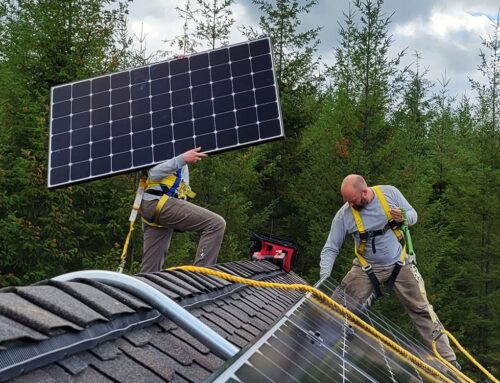Winter storms and power outages are becoming increasingly common in Washington State. As more homeowners seek energy independence, battery storage has emerged as a crucial component of modern solar installations. Understanding your battery options and sizing needs is essential for creating a reliable backup power system.
Battery technology has evolved significantly in recent years. While lead-acid batteries were once the only option, modern lithium-ion systems offer superior performance, longer life, and compact design. These systems can keep essential home systems running for days during outages while providing daily benefits through peak load shifting.
Sizing your battery system requires careful consideration of Washington’s unique challenges. Winter outages often coincide with periods of lower solar production, making proper battery capacity crucial. Our data shows most Washington homes need 10-15 kWh of storage to power essential loads through typical outage periods, though needs vary based on usage patterns.
Smart battery systems, like a Tesla Powerwall do more than just provide backup power. They can optimize your energy usage year-round by storing excess solar production during summer days and powering your home during expensive peak rate periods. This daily cycling can improve your system’s financial returns while ensuring you’re prepared for outages.
The impact of weather on battery performance requires special attention in Washington. Cold temperatures can affect battery capacity, but modern systems include thermal management features to maintain performance in our climate. Proper installation location and insulation ensure reliable operation year-round.
Real outage data from our customers reveals interesting patterns. During last winter’s major storms, homes with battery backup maintained power for an average of 3.2 days. Essential loads like refrigeration, heating, basic lighting, and communication devices remained operational throughout the outages, providing crucial comfort and security.
Cost considerations have evolved favorably. While battery storage represents an additional investment, federal tax credits now cover 30% of battery costs when paired with solar. Many Washington utilities also offer additional incentives for battery installation, recognizing their value for grid stability.
Ready to protect your home from power outages? Learn more by contacting Sunergy Systems today!









